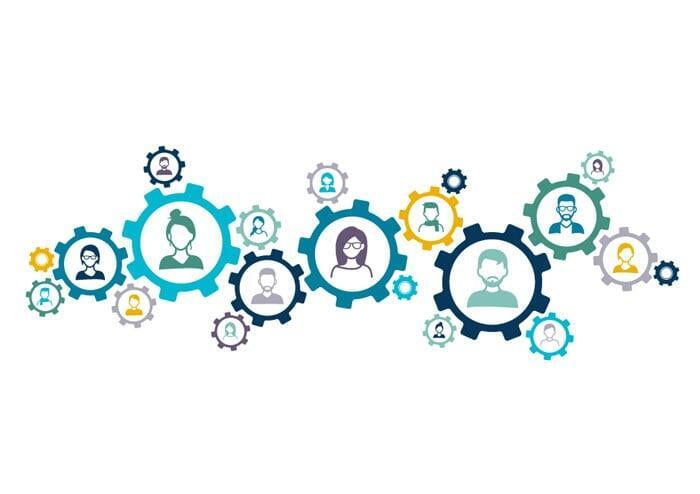When your estate agency innovates and improves their business by migrating to a better CRM, it is a momentous occasion. The possibilities enabled by up-to-date CRM are exciting. Your estate agency may recognise that it is time for an updated CRM solution when the current CRM tool doesn’t work as well as it used to (it’s not future proof), it bugs a lot or it has insufficient data management capabilities.
A CRM migration is the process of migrating data from your current customer relationship management system (CRM) to a new CRM software. However, the migration process is more complex than simply moving customer files from one system to the next. In all of the excitement when moving to a new CRM, there are some things that can get overlooked.
These oversights can cause great problems down the road and cause you to doubt your choice, or worse, give up and stay with your old system. Unfortunately, there are some common mistakes and misconceptions about migrating to another CRM, resulting in an unsuccessful CRM migration.
Insufficient CRM data migration preparation
Implementing before defining CRM processes
Not learning about your CRM processes
Not maximising lead/ customer segmentation
Dezrez has helped over 6000 new customers get started on their new estate agent CRM since 1999. Through working with all those estate agents, we have found some common missteps that are easy to proactively avoid.
If you are considering moving your business to another CRM estate agent software platform, here are four things you really need to be aware of before you begin migrating.
Estate Agent CRM migrations: Common Pitfalls
1. Insufficient CRM Data Migration Preparation
The migration to an updated CRM system has a high level of complexity, meaning that it is essential to have a CRM integration plan for your customer data.
This means that your CRM migration is going to take time - as a lot of it is organising your client and property data needs to be prepared before commencing your CRM software implementation process. CRMs are modular and transferring data from one CRM system to another means that you have to prepare, organise and customise your data before you begin using your new system.
One major mistake when implementing an updated CRM within your estate agency is to underestimate the time it takes to move over your customer data (contact information, demographic data, their marketing preferences, customer interaction history and tracked phone calls), property management data, marketing campaign outcomes, employee information and much more.
All this data must be prepared and organised sufficiently so that the move over to another CRM is as smooth as possible.
Give yourself enough time and plan for more time than you expected. If you rush through a CRM migration, you might end up causing more harm than good.
2. Implementing Before Defining CRM Processes
It is important to avoid jumping in at the deep end with a new CRM software and the processes it performs before considering the purpose, utility and reason for implementing new systems.
Too often, a new CRM user will start building their processes before sitting down and mapping out their needs. Consequently, those solutions no longer seem to be suiting the needs of your estate agents as they may have implemented conflicting processes.
For example: a new CRM user creates a valuation web form that creates a task for a negotiator to follow up when the form is submitted. Then, as they are building out their sales pipeline, they realise this 'contact us' mechanism doesn't put those leads into the sales pipeline which means their reps will now have two places to track leads.
When migrating to a new CRM, the best thing you can do is to sit down and identify all existing processes and workflows within your current system that are important and which are failing.
How do you currently collect new leads and what happens to them?
How does your sales process work?
What happens with fulfilment once a lead converts into a customer?
It is crucial to define your core processes clearly before implementing any CRM changes, otherwise you're doomed to have a failed CRM migration.
3. Learn About the New CRM Processes
It seems self-evident to suggest that in order to get to grips with your CRM software you should learn about the processes, but it is an all too common mistake that employees fail to learn the true potential of their updated CRM solution.
Often, when switching CRM software, there is new functionality you can leverage. It is highly beneficial to understand these new functions. Sometimes, using a particular function properly will greatly improve a currently inefficient process.
The more you know about your estate agency CRM, the more you will get out of it. Your new CRM may have processes that you’re not currently utilising live sales updates, e-signatures and document uploads, and automated appointment management systems, check these out before a migration.
For example, let's take a look at lead scoring.
Lead scoring is a marketing and sales tactic that assigns a certain amount of points to a prospect when they complete different actions (opting into your newsletter, downloading a lead magnet, etc). In this way, leads are prioritised, and those with more points should be contacted first as they are the most engaged.
If your CRM includes lead grading, be sure to learn how to use it properly. While you can probably find other ways to place leads on a scale of importance, in doing so you're effectively hammering a nail with a screwdriver. It may work, but there is a better, more functional way of completing the task.
Do your best to use the native functionality of your new CRM system as it was designed. This is where the existing user community is handy. Get in contact with people who are already using the CRM to which you plan to migrate. Chances are, they've run into the same questions (and answers) that you have right now.
Ensuring that you manage your team and their use of the correct functions within the CRM software will enable you to have a more successful CRM implementation process.
4.Not Maximising Lead/ Customer Segmentation
When you are using the native functionality of your new CRM as it is expected, there are often opportunities to improve your existing processes.
In most cases, creating better, more intentional experiences for your leads and customers is a big opportunity. One of the big dreams a CRM enables is the ability to deliberately create meaningful relationships and leave a clear automated paper trail. There are numerous benefits to automating your workflow and implementing a CRM system which has these capabilities will help you reach out to your clients.
When migrating over your current processes, look for opportunities to further automate your messaging and actions. Do you have a valuation tool with opt-in with a GDPR preference engine? Maybe you can group out your leads from customers upon opt-in and deliver a different welcome email depending if they are vendors, landlords, applicants or tenants.
If you have multiple products/services, are you tracking which specific offers a lead is qualified for or do you lump everyone into the same bucket and leave manual notes for their property interests?
Once you’ve mapped out your current processes, you’ll see opportunities to leverage your new CRM for powerful segmentation. After all, the more relevant and timely your messages are, the more effective they should be!
5. Reducing Mistakes = Increasing Customer Relationships
You have to commit to using your new CRM software, and by reducing the mistakes made during the migration will enable your estate agency to increase the likelihood of experiencing a successful CRM migration.
With the phenomenal capabilities of cloud-based, automated software, your agents can get the boost they need to increase their customer service and deepen customer relationships, ultimately resulting in better business for you.
Will it be scary? Yes. Will there be a bumpy transition period? Maybe, but you can minimise that. Will it be worth it? Absolutely!
Book now for a free, no obligation demo where you can access full customer support to guide you through updating your CRM.







